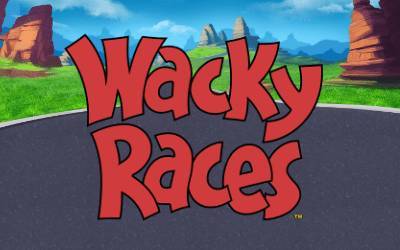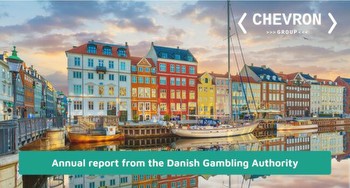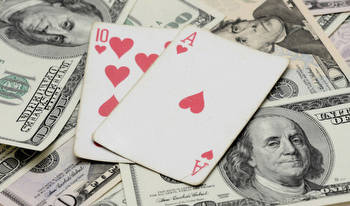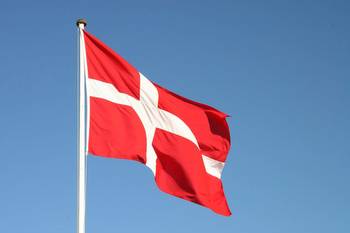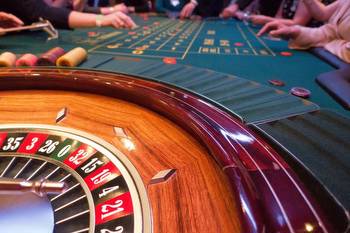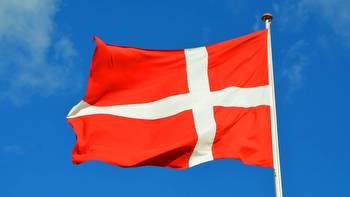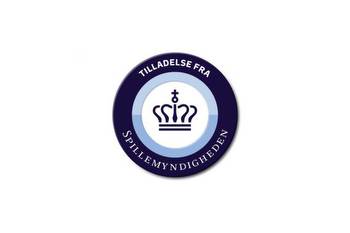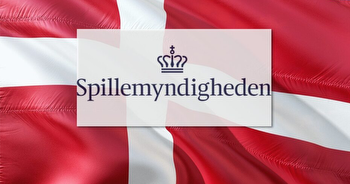Danish government's success with gambling addiction reported by Dkcasinospot
, /PRNewswire/ -- In Denmark, the gambling industry underwent significant changes in 2012, transitioning from a state monopoly to liberalization. Private companies were granted licenses to offer betting services and online casinos, leading to a surge in online gambling. Other European countries have followed a similar development path in recent years.
Danes spend less money on gaming than residents of Sweden, Norway, Finland, and Iceland. At the same time, Denmark ranked fourth in Europe in terms of online gambling share in 2022, according to Spillemyndigheden reports published in June 2023. The team of the Danish web portal , which is owned by HraiGamble Group, has analyzed the peculiarities of the Danish gambling market and identified several characteristics of the industry.
Online gambling is more popular in Denmark than in most other European countries
Although there are many different gambling games, there are a few types of games that are particularly popular among Danes. This can be seen in reports published by Spillemyndigheden. These reports provide information on the market shares for different gaming areas, as well as the revenues of gaming providers from different types of games.
In their study, Dkcasinospot experts relied on official data provided on the website of the Danish Gambling Regulatory Authority Spillemyndigheden. After analyzing a large amount of data, the team of experts described a brief overview of the specifics of the gaming industry in Denmark.
In general, casino games, including slot machines and table games, account for about 2/3 of the revenue of gaming suppliers in Denmark. The remaining third comes from sports betting. Lotteries traditionally occupy the tip of the gambling iceberg.
- Lotteries
- Online slot machines
- Sports betting
- Online roulette
- Online Blackjack
- Baccarat
Slot machines generate a whopping 75.99% of total online casino revenue with a 29% market share.
In 2022, the Danes spent an average of approximately 2,350 danish kr on gambling. This puts the average gambling expenditure of Danes in 12th place in Europe. Iceland, Finland, Sweden, and Norway are higher on the list in 2022, meaning that Danish gambling spending is the lowest per capita in the Nordic region.
According to the Spillemyndigheden report, in 2022, 60% of gambling consumption in Denmark was online. This trend can be explained by the fact that Danish society has undergone a high level of digitalisation, and after 2012, a high percentage of gambling to take place online.
Sweden has the highest share of online gambling in Europe - almost 68%, followed by Finland. Norway is also in the top 10. Thus, online gambling is most popular among players in the Scandinavian region.
88% of Danish players first started gambling before the age of 25
Since the launched the StopSpillet hotline in 2019, counsellors have received almost 2,500 enquiries. It became clear then that the vast majority of people with gambling problems start gambling before the age of 25.
38% of players contacted by StopSpillet had their first gambling experience at the age of 25 or younger. StopSpillet's data is striking, with approximately half of players having their first gambling experience before they turned 18. This is despite the fact that the age limit for most gambling activities in Denmark is 18.
Another trend that can be highlighted here is that, on average, players have had a gambling problem for about 2 years and 7 months when they contacted StopSpillet. Studies show that the earlier a player starts gambling, the greater the risk of developing a gambling addiction.
Voluntary refusal to gamble is popular among Danes
When the Spillemyndigheden created the (ROFUS) in 2012, Danish players were among the first in the world to be able to block themselves from accessing any online gambling with a few clicks of the mouse, on any gadget. ROFUS was created as part of a political agreement on the partial liberalisation of the Danish gambling market and became one of several political initiatives aimed at combating gambling addiction.
When a player registers with ROFUS, he or she is banned from playing with all online gambling operators licensed in Denmark, as well as physical casinos. The player can choose between a temporary exclusion (24 hours, 1, 3 or 6 months) or a permanent exclusion. If a player excludes himself permanently, he can cancel his registration after one year.
At the end of 2012, just under 1,500 Danes were registered with ROFUS, and by the end of February 2023, this number had reached 40,000.
The Spillemyndigheden has conducted two large-scale campaigns since 2016 to draw more attention to the existence of the registry, including screenings on television, in cinemas, and on social media. Obviously, this could have resulted in a steady increase in the number of players registering with ROFUS.
In addition, from 1 January 2020, online gambling operators operating on the Danish gambling market and in physical casinos in Denmark must refer to ROFUS in their marketing campaigns.
Of the more than 40,000 people registered with ROFUS at the end of February 2023, 26,500 people have decided to permanently exclude themselves, i.e. almost 66% of all registered persons.
Considering these specifics, the Danish gambling industry is likely to continue experiencing growth, driven by the increasing popularity of online gambling and initiatives aimed at responsible gaming practices. The implementation of measures like ROFUS has the potential to contribute to a healthier gambling environment, promoting responsible gaming habits among the Danish population.
"Furthermore, research indicates that a majority of Danish gamblers started their gambling activities before the age of 25, highlighting the importance of early prevention and awareness programs to combat gambling addiction." - concludes , expert of the dkcasinospot.dk.
Ongoing monitoring and continuous efforts to raise awareness about responsible gambling will be essential to ensuring the sustainable and balanced development of the Danish gambling industry in the future.








